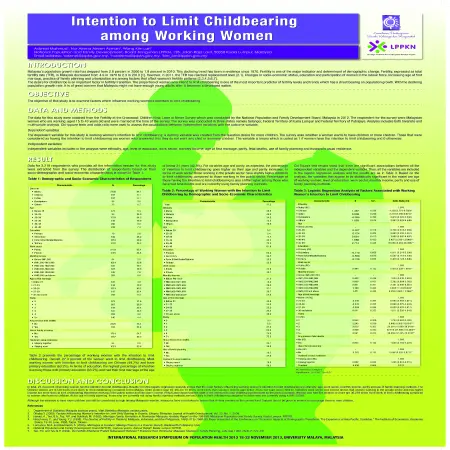Browse by Type
Results for Item type : "Scientific Poster"
2013 (1)
|
|
Intention to limit childbearing among working women
Item Type: Scientific Poster
Editor:
Year: 00/11/2013
Abstract: Malaysia's population growth the rate has dropped from 2.6 percent in 2000 to 1.9 percent in 2010. This declining trends has been in evidence since 1970. Fertility is one of the major indicator and determinant of demographic change. Fertility, expressed as total fertility rate (TFR), in Malaysia decreased from 4.9 in 1970 to 2.3 in 2010. However, in 2011, the TFR has reached replacement level (2.1). Changes in socio-economic status, education and participation of women in the labour force, increasing age at first marriage, practice of family planning and urbanization are among factors that affect women's fertility pattern.
|
|
|
|





